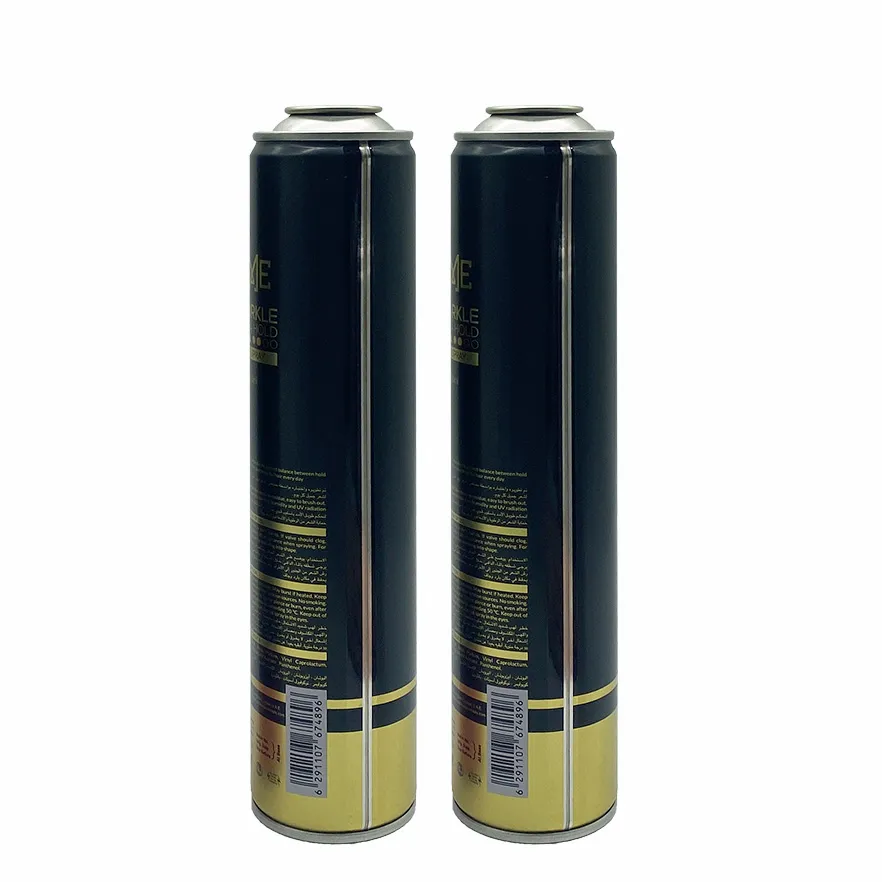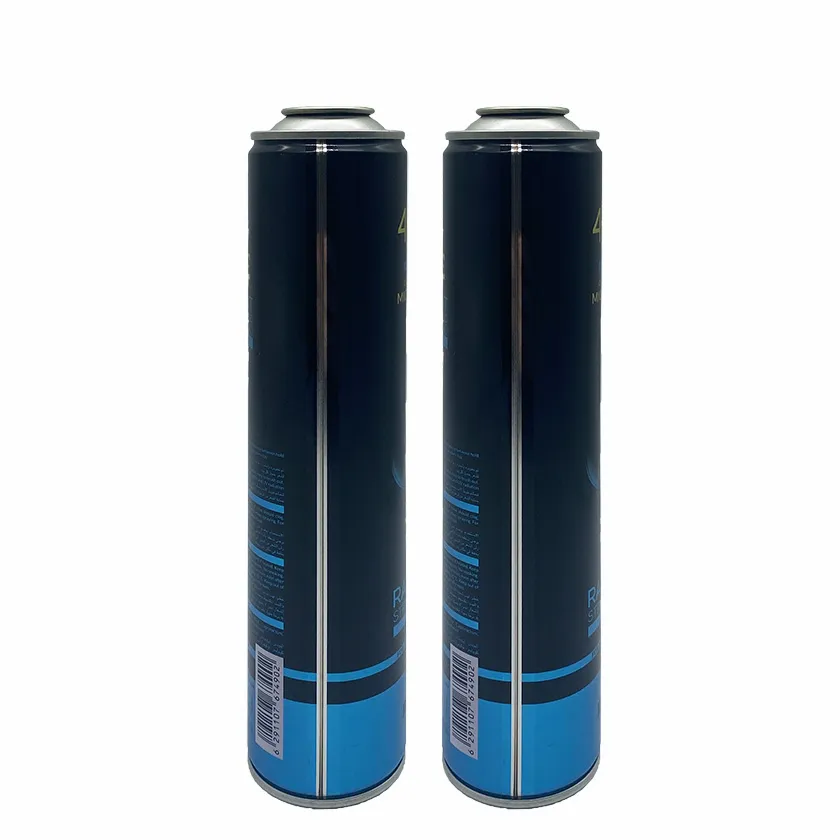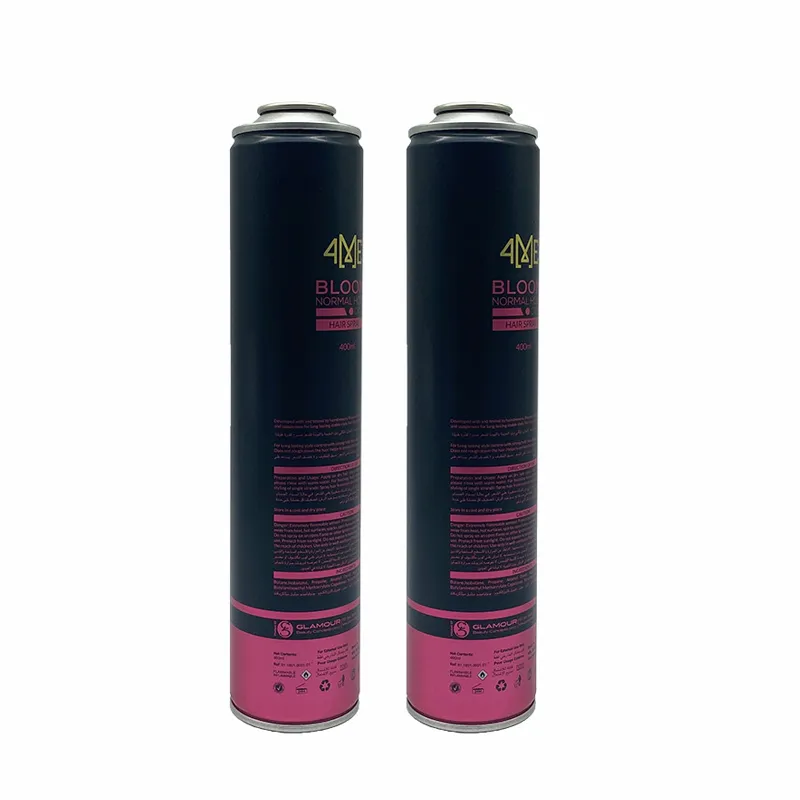In our daily lives, aerosol tin cans can be found everywhere, from hair spray, insecticide to air freshener, they all provide us with convenience. With the increasing popularity of aerosol tin cans, many people have begun to pay attention to their manufacturing materials, especially whether aerosol tin cans are made of tin.
This article will take a deep look at the manufacturing materials of aerosol tin cans, clarify some common misunderstandings, and analyze the technology and applications behind them.

Basic structure of aerosol tin can
Aerosol tin can usually consists of three parts: a tank body, a valve, and a nozzle. The tank body is the main part, which is used to store the contents and compressed gas. The valve controls the release of the contents, and the nozzle is responsible for spraying the contents out. The material of the tank body is crucial to the performance and safety of the aerosol tin can.
Common materials for aerosol tin cans
1. Aluminum
Aluminum is one of the main materials for making aerosol tin cans. Aluminum cans are widely used because of their light weight, strong corrosion resistance, and easy processing into various shapes. Aluminum cans are commonly used to package products such as food, beverages, and cosmetics.
● Advantages:
● Lightweight: Aluminum cans are light in weight and easy to carry and transport.
● Corrosion resistance: Aluminum itself has good corrosion resistance and is not easy to rust.
● Recyclable: Aluminum is a highly recyclable material and meets environmental protection requirements.
● Disadvantages:
● High cost: The production cost of aluminum cans is relatively high.
● Low strength: The strength of aluminum cans is relatively low and easy to deform.
2. Steel
Steel cans are also a common material for aerosol tin cans. Steel cans are usually tinned or chrome-plated to enhance their anti-corrosion properties. This type of coated steel cans are widely used in the packaging of industrial products and chemical products.
● Advantages:
● High strength: Steel cans have high strength and hardness and are not easy to deform.
● Good pressure resistance: Steel cans can withstand high internal pressures and are suitable for aerosol tin cans containing high-pressure gases.
● Disadvantages:
● Heavier: Steel cans are heavy and not easy to carry.
● Easy to rust: Steel cans are prone to rust after the coating is damaged, so you need to pay attention to protection.

Is aerosol tin can made of tin?
Tin is not the main material of aerosol tin can. In fact, tin is mainly used in the coating process, not the base material of the can body. Specifically, tin-plated steel cans are steel cans with a thin layer of tin on the surface to prevent rust and corrosion. Such tin-plated steel cans are usually used for packaging of food, beverages and certain chemical products, but not all aerosol tin cans are tin-plated steel cans.
1. Tin-plated steel cans
The production process of tin-plated steel cans includes plating a layer of tin on the surface of the steel can to improve its anti-corrosion performance. This tin-plating process not only enhances the corrosion resistance of the steel can, but also improves its appearance, making it more shiny and beautiful.
2. Comparison between aluminum cans and tin-plated steel cans
● Weight: Aluminum cans are lighter, while tin-plated steel cans are heavier.
● Anti-corrosion performance: Aluminum cans naturally have good anti-corrosion properties, while tin-plated steel cans rely on the tin coating for corrosion protection.
● Cost: Aluminum cans are expensive to produce, while tin-plated steel cans are relatively cheap.
What are the application areas of aerosol tin cans?
1. Personal care and cosmetics
Aerosol tin cans are widely used in personal care and cosmetics, such as hair spray, foaming agent, perfume spray, etc. These products usually use aluminum cans because of their lightness and beauty.
2. Food and beverages
Aerosol tin cans are also widely used in the food and beverage industry, such as cream spray, cooking oil spray, etc. These products usually use tin-plated steel cans because of their good anti-corrosion properties and cost-effectiveness.
3. Industrial and chemical
Aerosol tin cans in the industrial and chemical fields are usually used to package lubricants, detergents, pesticides, etc. These products have high requirements for the strength and corrosion resistance of the can material, so steel cans or tin-plated steel cans are usually used.

Production process of aerosol tin cans
The production process of aerosol tin cans involves many complex processes, including material preparation, molding, coating, assembly and testing. The following are the main steps in the production of aerosol tin cans:
1. Material preparation
Select the appropriate material (aluminum or steel) as the base material of the can body and perform preliminary processing.
2. Forming
The base material is processed into the basic shape of the can body through stretching and stamping processes. For aluminum cans, stretching forming is usually used; for steel cans, stamping forming is usually used.
3. Plating
The steel cans are tinned or chrome-plated to improve their corrosion resistance. This step is not required for aluminum cans.
4. Assembly
Assemble the can body, valve and nozzle to ensure the sealing and functionality of the aerosol tin can.
5. Testing
The finished aerosol tin can is strictly tested for quality, including pressure testing, sealing testing and appearance testing to ensure that the product meets the standards.
Environmental issues of aerosol tin can
1. Recycling and reuse
Both aluminum cans and tin-plated steel cans have high recycling value. The recycling process of aluminum cans is relatively simple and has low energy consumption; the recycling of tin-plated steel cans requires the removal of the surface coating before the steel is recycled. Recycling helps reduce resource waste and environmental pollution.
2. Waste disposal
The disposal of discarded aerosol tin cans requires special attention to the residual chemicals and compressed gases inside them. The correct disposal method includes completely using the aerosol tin can and recycling it according to local waste classification requirements.
Conclusion
Aerosol tin cans are not made of tin, but mainly use aluminum or steel as the base material. Tin is mainly used in the coating process to improve the corrosion resistance of steel cans. Understanding the materials and production processes of aerosol tin cans will help us better select and use aerosol tin can products. At the same time, paying attention to the recycling and environmental protection issues of aerosol tin cans will help reduce resource waste and environmental pollution.

